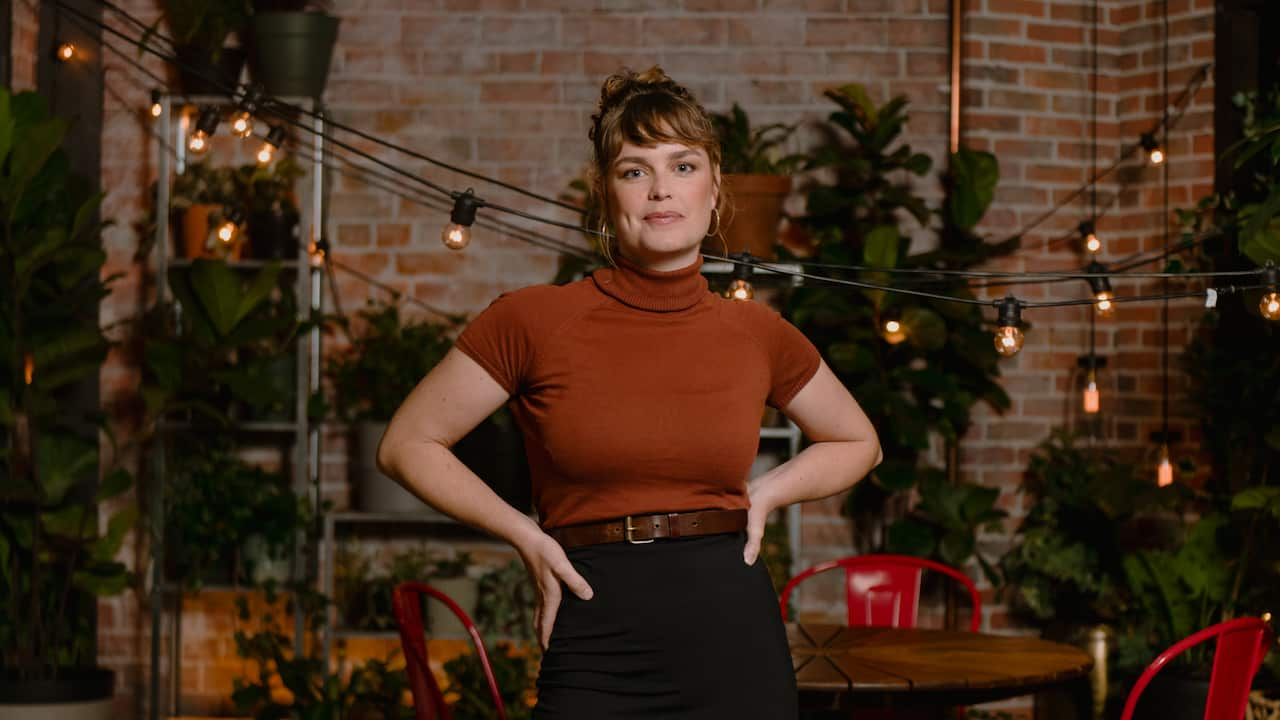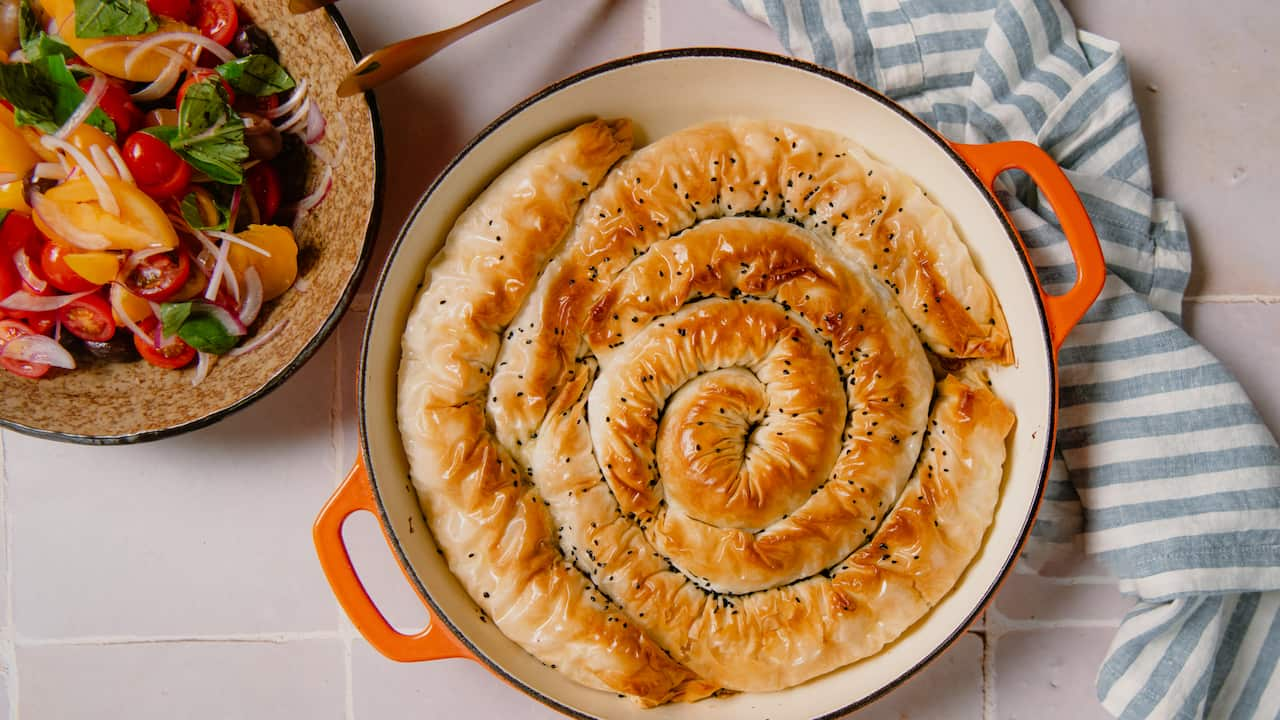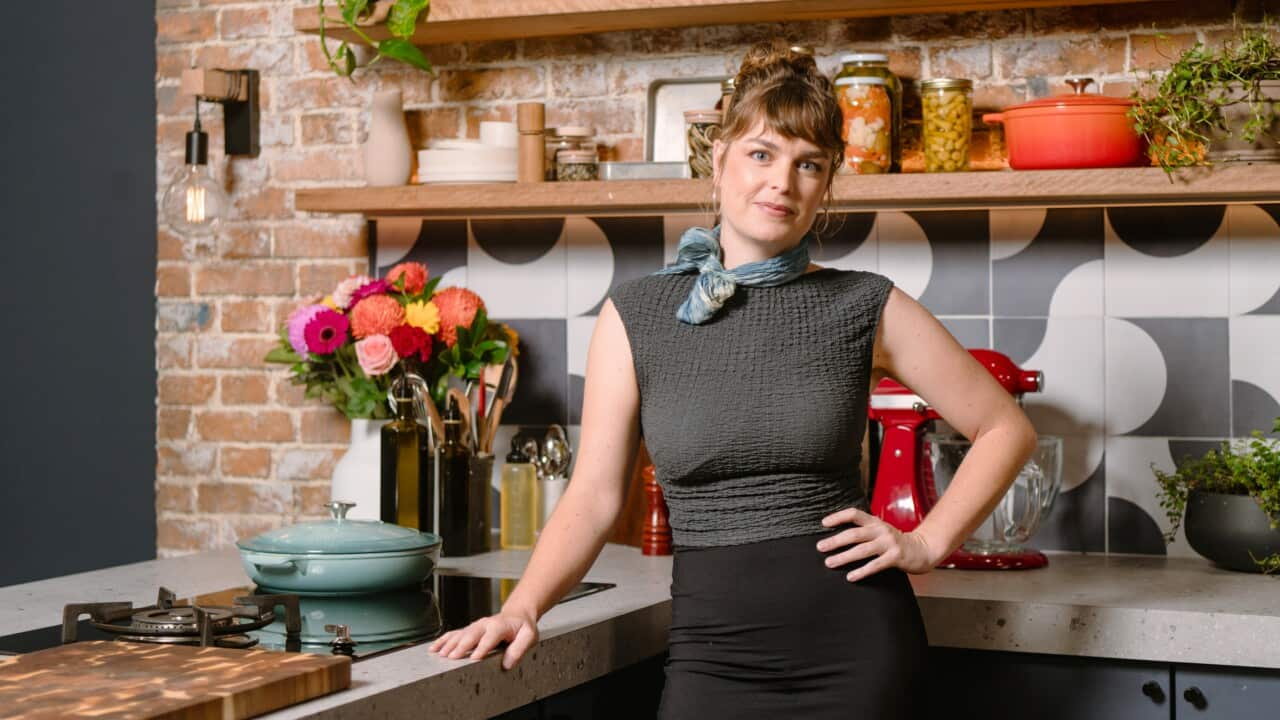Some vegan restaurants are struggling, faux-meat sales are in decline, and the carnivore and flexitarian diets are trending. So, where have all the vegans gone?
Not far, says Katie White. The Byron Bay-based chef, cooking teacher and author of The Seasonal Vegan prepares several vegan dishes on this season of The Cook Up with Adam Liaw.
Growing up in rural Western Australia, surrounded by animals, she became a vegetarian as a child, and transitioned to veganism in her twenties.
“I absolutely didn't want to take part in any animal cruelty,” she explains. “We can avoid animal products and still thrive, and live really amazing lives. So, if we can live without harming others, it obviously begs the question, why would we?”
One of the first people to obtain Le Cordon Bleu's Plant-Based Culinary Arts Diploma in London, she now shares her knowledge through her cooking school and online community, By Katie. White is also a musician, who has dedicated songs to the plight of animals.
White’s personal convictions have never wavered, but she’s noticed the cultural tide shifting around her, and she has some thoughts on why.
Reverting to familiar
The perception that veganism is expensive is one she’s quick to challenge. “For the price of a $20 steak, you could buy two heads of broccoli, a kilo of potatoes, three tins of chickpeas, curry paste and a can of coconut cream,” she says.

But she recognises that when people are under pressure, financial or otherwise, creativity in the kitchen often takes a backseat. “When we're stressed, we revert to what we know. That’s just how the brain works,” she explains. “If you’re worried about making rent, you’re probably not spending time researching vegan cheese alternatives.”
It’s human nature, she says, to fall back on the foods we grew up with, which for most of us, include meat, dairy and eggs.
“We end up going back to what we were brought up with.”

When food trends shift
Veganism, like anything else, isn’t immune to trends.
“Like all fashions, they evolve, they have highs and lows. We've had a pretty good run in veganism, and I guess that some people are now looking for something new,” she muses.
Enter the flexitarian and even carnivore diets, which have found huge followings on social media. While some long-time vegans bristle at the idea of a part-time plant-based approach, White sees potential in flexitarianism.
I think we all have to be slightly more open-minded. The flexitarian movement may be a way to keep people's minds open to eating less animal products.
At her cooking school, classes span both vegetarian and vegan options; there simply isn’t enough demand for exclusively vegan sessions.
Recent research also suggests that vegans are changing what they look for, too, with less emphasis on products that mimic meat and dairy.
Easier than ever
The good news? Whether you’re embracing veganism or just want to eat fewer animal products, it’s never been easier.
“It's a privilege to live in a time when we don’t need animal products to cook a full meal,” White says. “And these options are affordable, especially if you're not buying the steak and the chicken at the same time.”
Her everyday meals revolve around what’s local, seasonal and accessible: maybe a vegan spanakopita, or a beetroot chocolate cake.

Still, she’s not above the occasional shortcut with mock meats like a Beyond Burger when she’s out, or keeping vegan sausages in the freezer for busy nights.
“They're a great way to make your life easier and I don't have any problem with them. Obviously, they're not something that should be consumed daily because they are still a processed food, but they're sure as hell healthier than their equivalent,” she says.
Looking ahead
As climate concerns grow more urgent, White hopes food choices will follow suit.
“The science shows that what we eat is the most powerful form of climate activism that we have,” she concludes.
So, is veganism going out of fashion? Maybe. But for White, and many like her, it’s still as relevant as ever, just evolving.
SBS Food is a 24/7 foodie channel for all Australians, with a focus on simple, authentic and everyday food inspiration from cultures everywhere. NSW stream only. Read more about SBS Food
Have a story or comment? Contact Us

